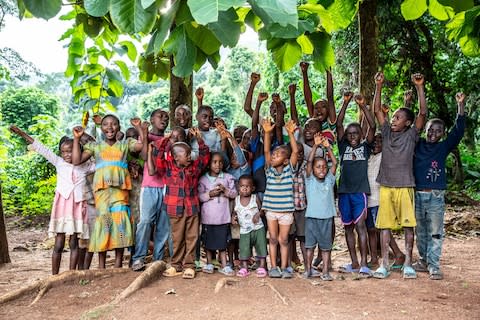Bad sanitation kills more in Nigeria than Boko Haram – it's time to take the toilet seriously

Today is World Toilet Day, a UN-backed initiative established in 2001 that inspires action to tackle the global sanitation crisis.
In 2019, more than half the world’s population – 4.2 billion people – live with poor sanitation and hygiene, two billion drink water contaminated with faeces and 673 million still defecate in the open.
Annually, this costs countries $260 billion, causes 432,000 diarrhoeal deaths (of which 297,000 are infants under five) and stunts the physical and cognitive development of millions of children.
Today also marks the launch of the ‘Clean Nigeria’ Campaign that strives to end open defecation in the country by 2025.
This is significant as Nigeria is now the last bastion of this archaic practice after India announced the conclusion of its own five-year national campaign in October – in which 90 million toilets were constructed in rural areas at a cost of $28 billion.

Nigeria’s human security challenges are so often misunderstood that many may still think that ‘Boko Haram’ is the cause of the biggest loss of life in the country.
In fact, it is diarrhoea and its related diseases that claim by far the most lives each year, especially among the youngest of the 200 million-strong population. It may lack the headline-grabbing appeal of a conflict, but human waste is starting to become a major story in Nigeria and that’s only going to grow thanks to today’s commitment by President Buhari.
Unfortunately, the latest data shows that only 40 out of 152 countries are on track to achieve Goal 6 of the Sustainable Development Goals, which targets access to adequate and equitable sanitation for all and an end to open defecation by 2030.
The slowest rates of progress are in rural areas, especially among the most marginalised – the poor, women, children, the elderly, and those living with disabilities and disease.
The business case for increased and better targeted investment in sanitation could not be clearer: for every $1 invested in basic urban sanitation, an average of $2.5 is returned in saved medical costs and increased productivity; in rural areas, $5 is returned for every $1 invested.

But most countries do not have the resources to do what India has done over the last five years. Other approaches are sorely needed.
Although Nigeria’s initiative was inspired by India’s success, there are stark differences in the approaches of both countries.
The Nigerian Government will not be building millions of toilets for its people or providing subsidies for them to construct their own.
Instead, the Federal Government is committing only $30million a year to the cause and pushing its decentralised regional governments to take ownership of the process and match the funds put forward by international donors and the private sector.
It has also committed to an innovative bottom-up delivery method that has proven to be effective in remote areas where all other methods have failed.

This model was pioneered by the UN’s Water Supply and Sanitation Collaborative Council (WSSCC). Using an approach known as Community-Led Total Sanitation, communities learn the reality of their sanitation situation, ‘triggering’ feelings of disgust and shame that inspires them to commit to transforming it.
Community volunteers support households to build their own toilets and only when each person has access to and uses a toilet and handwashing facility can the community become Open Defecation Free. As each community celebrates this milestone and the accompanying health benefits, they spread the knowledge to their neighbours.
United Purpose, a UK-based NGO that works in 19 countries, is proud to lead this intervention in collaboration with agencies from all three tiers of the Nigerian Government, local civil society groups and traditional leaders, with funding and strategic guidance from WSSCC.
The movement is gaining momentum: 14 out of Nigeria's 774 Local Government Areas are now Open Defecation Free, six of those targeted by projects led by United Purpose.
It is this kind of collaborative approach that is affordable to all countries and starts at the very bottom of the social ladder, where the need is greatest, that is most likely to bring an end to the sanitation crisis.
One that does not ‘give’ anything to poor communities – not toilets, not toilet building materials, and not subsidies – but instead empowers households with knowledge of the problem and the skills to find their own solutions.

Protect yourself and your family by learning more about Global Health Security

 Yahoo News
Yahoo News 
